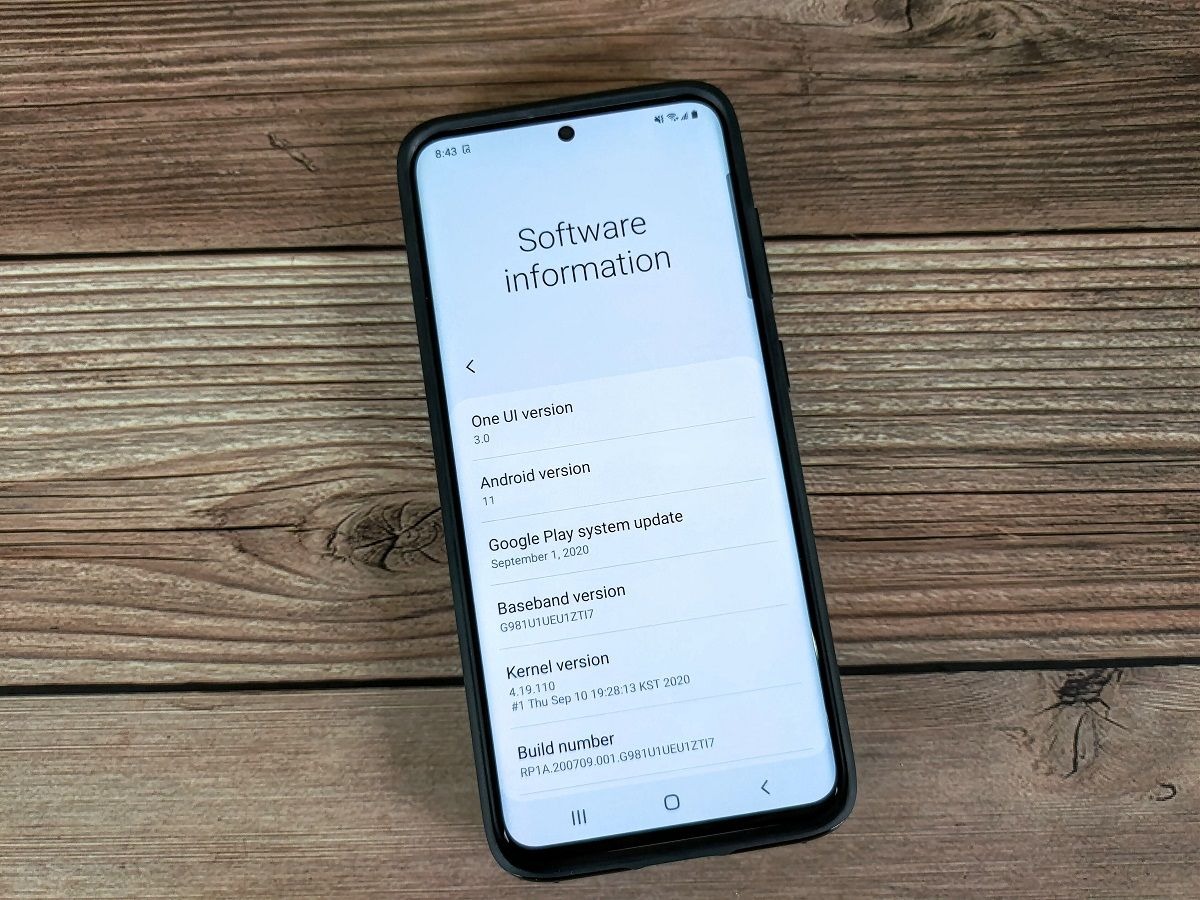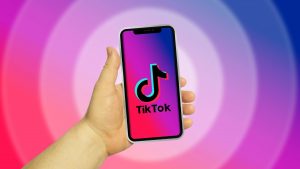What is Android?
Android is an operating system primarily designed for mobile devices, such as smartphones and tablets. It was developed by Google and is based on the Linux kernel, making it an open-source platform. Android offers a user-friendly interface, a vast range of applications, and seamless integration with Google services.
One of the key features of Android is its versatility. It supports a wide variety of hardware configurations and provides developers with the flexibility to create innovative and customizable applications. Android also boasts a robust ecosystem, with millions of apps available for download through the Google Play Store.
Notably, Android has gained significant market share in the mobile industry. Its open nature allows device manufacturers to adopt the platform and incorporate it into their own products. This has led to a diverse range of Android-powered devices available in the market, catering to different preferences and budgets.
Android is known for its frequent updates, delivering new features, performance improvements, and security patches to users. These updates are typically released by Google and then implemented by device manufacturers, ensuring that users can benefit from the latest advancements.
Overall, Android has revolutionized the mobile landscape, providing users with a powerful and customizable operating system that can be tailored to their specific needs. Its widespread adoption and continuous development make it a go-to choice for manufacturers and consumers alike.
What is Samsung?
Samsung is a multinational conglomerate company headquartered in South Korea. Founded in 1938, Samsung has diversified its operations across various sectors, including electronics, engineering, construction, shipbuilding, and more. However, it is most widely recognized for its presence in the consumer electronics industry.
Samsung has established a strong global reputation for its innovative and high-quality products. The company manufactures a wide range of electronic devices, such as smartphones, televisions, refrigerators, washing machines, and many others. Samsung’s commitment to excellence and cutting-edge technology has made it one of the leading brands in the market.
When it comes to smartphones, Samsung is particularly renowned. Its Galaxy series, powered by the Android operating system, has been highly successful globally. Samsung has consistently pushed the boundaries of smartphone design, display technology, camera capabilities, and performance, delivering devices that cater to users’ needs and preferences.
Besides smartphones, Samsung is also a dominant player in the television market. The company’s QLED and OLED TV series have gained popularity for their stunning display quality and immersive viewing experience.
Moreover, Samsung has a strong focus on research and development, investing heavily in creating innovative technologies. This has led to several groundbreaking advancements, including the introduction of foldable smartphones and 8K resolution televisions.
In addition to consumer electronics, Samsung is involved in various other industries. It produces memory chips, displays, and other electronic components, which are widely used by other technology companies. Samsung is also known for its contributions to the field of semiconductors and has become a key player in driving advancements in this sector.
Overall, Samsung is a global leader in consumer electronics and a company at the forefront of technological innovation. With its diverse range of products and a commitment to quality, Samsung has established itself as a trusted brand that continues to shape the industry.
Are Samsung devices Android?
Yes, Samsung devices are indeed powered by the Android operating system. Android, developed by Google, is an open-source platform that can be adopted by various device manufacturers. Samsung has chosen to utilize Android as the operating system for its smartphones and tablets.
By using Android, Samsung devices benefit from a wide range of features and functionalities that the platform offers. This includes access to the Google Play Store, which provides users with millions of applications to choose from. Whether it’s productivity tools, entertainment apps, or games, Samsung users can find a plethora of options to personalize their devices.
Additionally, Android enables seamless integration with Google services such as Gmail, Google Maps, Google Drive, and Google Assistant. Users can easily synchronize their accounts and access these services directly from their Samsung devices, enhancing convenience and productivity.
Another advantage of Samsung devices running on Android is the ability to customize the user interface. Samsung incorporates its own skin called One UI, which adds unique features and a distinct look to the device. This customization allows users to tailor their Samsung experience to match their preferences.
It’s important to note that while Samsung devices run on the Android operating system, they may have different versions of Android installed, depending on the device model and release date. Samsung typically provides software updates to ensure compatibility with the latest versions of Android, allowing users to benefit from new features and security enhancements.
Relationship between Samsung and Android
The relationship between Samsung and Android is one of collaboration and mutual benefit. Samsung, as a device manufacturer, has chosen to adopt the Android operating system developed by Google for its smartphones and tablets. This decision has played a significant role in Samsung’s success and its position as a leading player in the mobile industry.
Android provides Samsung with a solid foundation upon which it can build its devices and deliver a user-friendly experience to its customers. By utilizing Android, Samsung gains access to a vast ecosystem of applications, services, and developer tools that are part of the Android platform. This allows Samsung to provide its users with a wide range of options and a seamless integration with Google services.
On the other hand, the partnership with Samsung benefits the Android platform as well. Samsung’s market dominance and brand recognition contribute to the popularity and adoption of Android. Samsung’s devices serve as powerful showcases for the capabilities of Android, helping to attract more users to the platform.
In addition, Samsung’s collaboration with Google goes beyond just using Android as the operating system. Samsung actively works with Google to optimize the software experience on its devices. This collaboration ensures that Samsung’s devices are optimized for Android, with features and functionalities that enhance the user experience.
Furthermore, Samsung has made significant contributions to the development of the Android ecosystem. The company’s extensive research and development efforts have resulted in innovations that have been integrated into the Android platform. For example, Samsung has introduced features such as split-screen multitasking, enhanced security features, and camera enhancements, which have been adopted by Google and incorporated into Android.
Overall, the relationship between Samsung and Android is a symbiotic one. Android provides Samsung with a robust and versatile operating system, while Samsung’s partnership helps to strengthen and promote the Android platform. This collaboration has been instrumental in shaping the mobile industry and ensuring that users have access to powerful, feature-rich devices running on the Android operating system.
Samsung’s use of Android operating system
Samsung has embraced the Android operating system as the primary choice for its smartphones and tablets. The company’s utilization of Android has played a crucial role in its success and has positioned Samsung as one of the leading manufacturers in the mobile industry.
By leveraging Android, Samsung is able to provide its users with a powerful and versatile operating system. Android offers a user-friendly interface, customizable options, and a vast selection of applications from the Google Play Store. This allows Samsung users to personalize their devices and access a wide range of tools, games, and entertainment options to enhance their smartphone experience.
In addition to the broad range of features and applications available on Android, Samsung has implemented its own user interface called One UI. One UI provides a unique and visually appealing interface that enhances the overall user experience. It incorporates features such as intuitive navigation, split-screen multitasking, and a focus on one-handed usability, making Samsung devices with Android highly intuitive and efficient.
Furthermore, Samsung’s expertise in hardware design and manufacturing complements the capabilities of the Android platform. Samsung has consistently pushed the boundaries of smartphone technology, incorporating cutting-edge features such as high-resolution displays, powerful processors, and advanced camera systems into their devices. These hardware advancements, combined with the capabilities of Android, result in exceptional performance and a seamless user experience.
Samsung’s commitment to providing the latest software updates further enhances the benefits of using the Android operating system on its devices. The company regularly releases firmware updates that include performance enhancements, security patches, and new features to ensure users have access to the most up-to-date software. This commitment to software updates helps to prolong the lifespan of Samsung devices and ensures that users can enjoy the latest improvements in the Android ecosystem.
Overall, Samsung’s use of the Android operating system has proven to be a winning combination. By integrating the powerful features of Android with its hardware expertise, Samsung has delivered a compelling user experience and established itself as a leader in the mobile industry. Samsung’s ongoing commitment to innovation and collaboration with Google ensures that users can continue to benefit from the best of both worlds – Samsung’s exceptional hardware and the versatility of the Android operating system.
Benefits of using Samsung devices with Android
Using Samsung devices that run on the Android operating system offers users a range of benefits that enhance their overall mobile experience. Here are some of the key advantages of using Samsung devices with Android:
- Versatility: Android’s open-source nature allows Samsung to customize the user interface and add unique features through their One UI skin. This customization gives users the flexibility to tailor their device to their personal preferences and needs.
- Application ecosystem: Samsung devices with Android have access to the extensive Google Play Store, providing users with millions of applications to choose from. This vast ecosystem covers various categories, including productivity, entertainment, social media, gaming, and more.
- Google services integration: Android allows seamless integration with Google services such as Gmail, Google Maps, Google Drive, and Google Assistant. This integration ensures a cohesive and connected experience across different devices and enhances productivity.
- Hardware innovation: Samsung is known for its industry-leading hardware innovations. By combining their hardware expertise with the capabilities of Android, Samsung devices offer cutting-edge features like high-resolution displays, powerful processors, advanced camera systems, and other hardware advancements that enhance the user experience.
- Frequent software updates: Samsung is committed to providing regular software updates to its devices. These updates not only include the latest security patches but also introduce new features and improvements to the user interface. Users can enjoy an up-to-date software experience and access the latest enhancements in the Android ecosystem.
- Integration with Samsung ecosystem: Samsung devices seamlessly integrate with other Samsung devices and services, creating a connected ecosystem. For example, Samsung SmartThings allows users to control their smart home devices directly from their Samsung devices, providing a convenient and streamlined experience.
- Support and customer service: Samsung has a global presence and offers robust customer support. They provide regular software updates, online support resources, and timely warranty services. Users can rely on Samsung’s support infrastructure for efficient troubleshooting and assistance.
Drawbacks of using Samsung devices with Android
While using Samsung devices with the Android operating system offers numerous benefits, there are a few potential drawbacks to consider. Here are some of the disadvantages users may encounter:
- Bloatware: Samsung devices often come preloaded with a variety of applications referred to as bloatware. While some of these apps can be useful, others may take up storage space and potentially slow down the device. However, many of these preinstalled apps can be uninstalled or disabled.
- Software update delays: Despite Samsung’s commitment to providing regular software updates, there can be variations in the timing and availability of updates across different device models and regions. This can result in delayed access to the latest version of Android and its features.
- User interface customization: While Samsung’s One UI skin provides a unique and visually appealing interface, some users may find the level of customization overwhelming or prefer a stock Android experience. It is worth noting that there are alternative Android devices available that offer a more minimalistic interface.
- Performance variations: Due to the wide range of Samsung devices available in different price ranges, there can be variations in performance. Lower-priced models may have less powerful hardware specifications, resulting in slower performance compared to higher-end devices.
- Price: Samsung devices with Android, particularly the flagship models, tend to be priced at a premium compared to other Android devices. This can make them less accessible to budget-conscious consumers.
- Choice overload: The extensive customization options and wide range of features available on Samsung devices with Android may overwhelm some users. Choosing between various settings and options can be daunting, especially for those who prefer a more straightforward and streamlined experience.
- Dependency on Google services: While the integration of Google services is a benefit for many users, those who prefer not to rely heavily on Google’s ecosystem may find it limiting. Samsung’s integration with Google services may make it difficult for users to seamlessly switch to alternative services or platforms.
It’s important to note that these drawbacks may vary in significance depending on individual preferences and requirements. Users should carefully consider these factors when deciding whether a Samsung device with Android is the right choice for them.
Alternatives to Samsung devices with Android
While Samsung devices with the Android operating system offer a range of benefits, it’s important to consider alternative options that may better suit your needs and preferences. Here are some alternatives to Samsung devices running on Android:
- Google Pixel: The Google Pixel lineup offers a pure Android experience as it is designed and manufactured by Google. These devices provide timely software updates, a minimalistic user interface, and seamless integration with Google services.
- OnePlus: OnePlus devices offer a balance of high-quality hardware and a near-stock Android experience. They are known for their excellent performance, sleek designs, and competitive pricing.
- Apple iPhone: If you’re open to switching ecosystems, iPhones provide a seamless integration of hardware and software with Apple’s iOS. iPhones are known for their premium build quality, optimized performance, and access to the extensive App Store.
- Sony Xperia: Sony Xperia devices offer a unique design aesthetic, solid build quality, and high-resolution displays. They also provide a near-stock Android experience with minimal bloatware.
- Motorola: Motorola devices are known for their affordability and near-stock Android experience. They often offer clean software interfaces and good value for the price.
- LG: LG devices provide a range of options with unique features and designs. Their user interfaces may have additional customizations, but they still offer access to the Android ecosystem.
- Huawei: Huawei devices offer powerful hardware and a heavily customized user interface called EMUI. However, it’s important to note that recent Huawei devices may not have access to Google services due to trade restrictions.
These alternatives provide a variety of choices in terms of user interfaces, software experiences, hardware capabilities, and pricing. It is recommended to research and compare the options to find the best fit for your specific needs and preferences.




